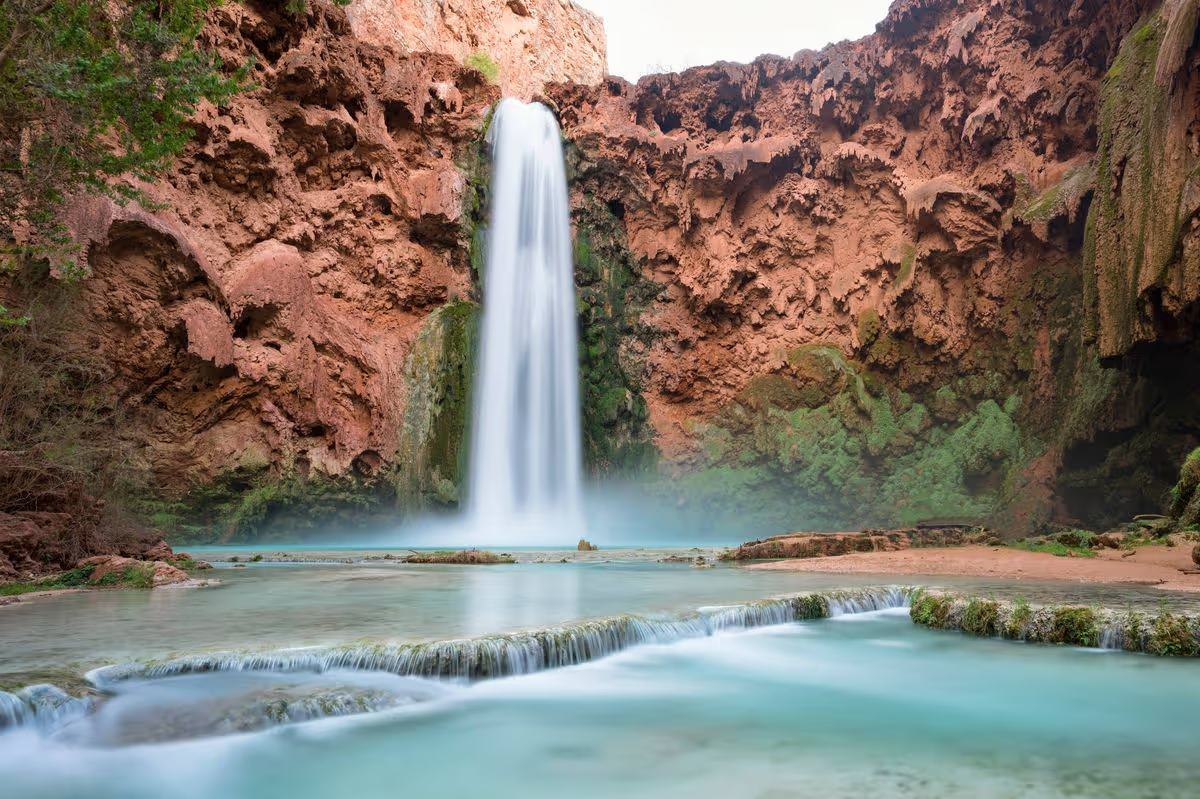The Grand Canyon is among the most famous natural wonders in the world. A woman who lives at the bottom of it in a remote village with her family has opened up on the reality of life there.
The Grand Canyon is as one of Earth’s most iconic natural wonders, pulling in millions of visitors from across the globe each year. Now, one woman has revealed she actually lives within the canyon itself – a revelation that’s left people both fascinated and amazed.
Situated in north-western Arizona, the Grand Canyon spans an impressive 277 miles and is a vast chasm sculpted by the Colorado River. Its striking layers of ancient red rock enhance its appeal, and it’s been protected as a National Park since 1919.
Tourists flock there in their millions every year to drink in the spectacular views, hiking trails, and even white water rafting adventures. A TikTok user posting under the handle @heyarielnicole recently shared drone footage of the magnificent landmark, accompanied by text which reads: “Today years old when I found out people live in the Grand Canyon.”
In the caption, she added: “I must have skipped school this day because I did not know this lol! Did y’all know people live in the Grand Canyon?”
Her post has since amassed more than 65.5 million views. The comments section erupted with shocked reactions, while others highlighted Shila S Siyuja, a woman who genuinely does call the Grand Canyon home alongside her family.
Shila uses social media to give followers a glimpse into what it’s really like living within one of the world’s most iconic natural landmarks. While she’s blessed with stunning scenery and access to the great outdoors, there are certain challenges that come with the territory.
One of her most popular videos shows Shila and her family undertaking an “eight-mile hike home” after missing their flight back into the canyon.
The family resides in the renowned Supai Village, nestled at the canyon’s base. This isolated settlement can only be reached by an eight-mile hike, helicopter, or mule ride.
Serving as the capital of the Havasupai Tribe, the village is celebrated for its striking turquoise waterfalls and close-knit community. Residents have access to a shop stocking essentials, a post office, a school, and even a café. Shila’s hiking video attracted many comments from captivated TikTok viewers.
One person asked: “So beautiful!! How long did it take?” Another said: “The real American people.”
A third viewer shared: “I got the privilege to visit your home years ago. Thank you.”
Someone else recalled: “Sister and I hiked at night to avoid the heat. Miss this place so much.”
Among Shila’s other widely-viewed videos is footage captured while she and her family embarked on a shopping trip outside the Grand Canyon. In the clip, Shila is shown boarding a helicopter for her journey home. Footage captured from beneath the aircraft reveals their shopping secured in an external sling load, which dangles from the helicopter’s body using a cable and cargo hook.
Shila and her family aren’t the only ones living there, though. More than 2,000 residents also live in the Grand Canyon, based at Grand Canyon Village on the South Rim.




